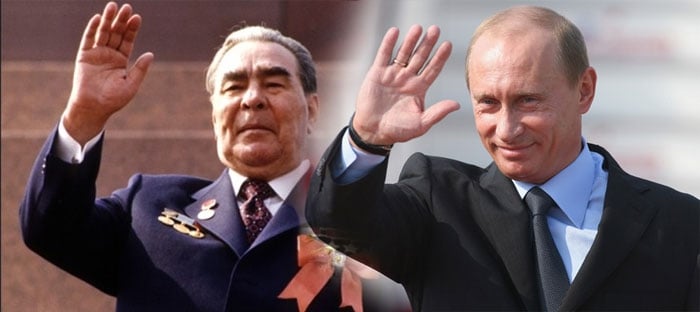By Paul Goble, Window on Eurasia
“The disintegration of the Soviet Union was prepared during the two decades of ‘developed socialism’” when “the language of the authorities and the media were even less capable of describing reality and ever less similar to the language the population of the country spoke,” Igor Yakovenko says.
The language of “developed Putinism” has a different vocabulary and sound than the wooden one of Brezhnev’s time, the Russian commentator says; but it shares with its predecessor this feature: it doesn’t allow reality to break through but presents a world existing independently of that reality (kasparov.ru/material.php?id=5D714DD856616).
Soviet-era news programs, Yakovenko says, were “impossible to watch” when they focused on domestic affairs; but their coverage of developments abroad was more interesting because, once one dispensed with the ideological trappings, one could read “between the lines” and learn a lot.
Now, however, he continues, “it is impossible ‘to read between the lines’” of Moscow televisions coverage of Ukraine, to which it devotes “more than half” of its total news airtime. That is because it consists entirely of “delusions” rather than providing any description of reality at all.
In his article, Yakovenko offers some recent pearls about Ukraine taken from Russian television shows to make his point. Among the notions that speakers on these programs put about are that Ukrainians are all “Banderites,” “fascists” and “a junta,” and that Ukrainian elections are a choice between “darkness” (the West) and “light” (Russia).
Other comments on these shows include the idea that Zelensky is an authoritarian without any comparison to a real one like Putin, that “God was on the side of the USSR and the Soviet Union won” because “only under Stalin was Russia led by geopolitical interests” and the suggestion that “the most horrible enemies of Russia are the liberals.”
And still others include the claims that “the south-east of Ukraine is our land” and that “if it weren’t for traitors we would now be broadcasting in Istanbul and Istanbul would be called in Russian, Tsargrad.”
One of the major obstacles to Western understanding of just how horrific the Putiin regime has become is the reluctance of reporters and their editors to report that the Kremlin’s television channels are putting out such things. In fact, as Yakovenko suggests, that is all Putin television is doing now.
And he is right to note that this departure from reality which led to the demise of the Soviet Union a generation ago may have the same or an even worse effect on Putin’s Russia today.
By Paul Goble, Window on Eurasia





